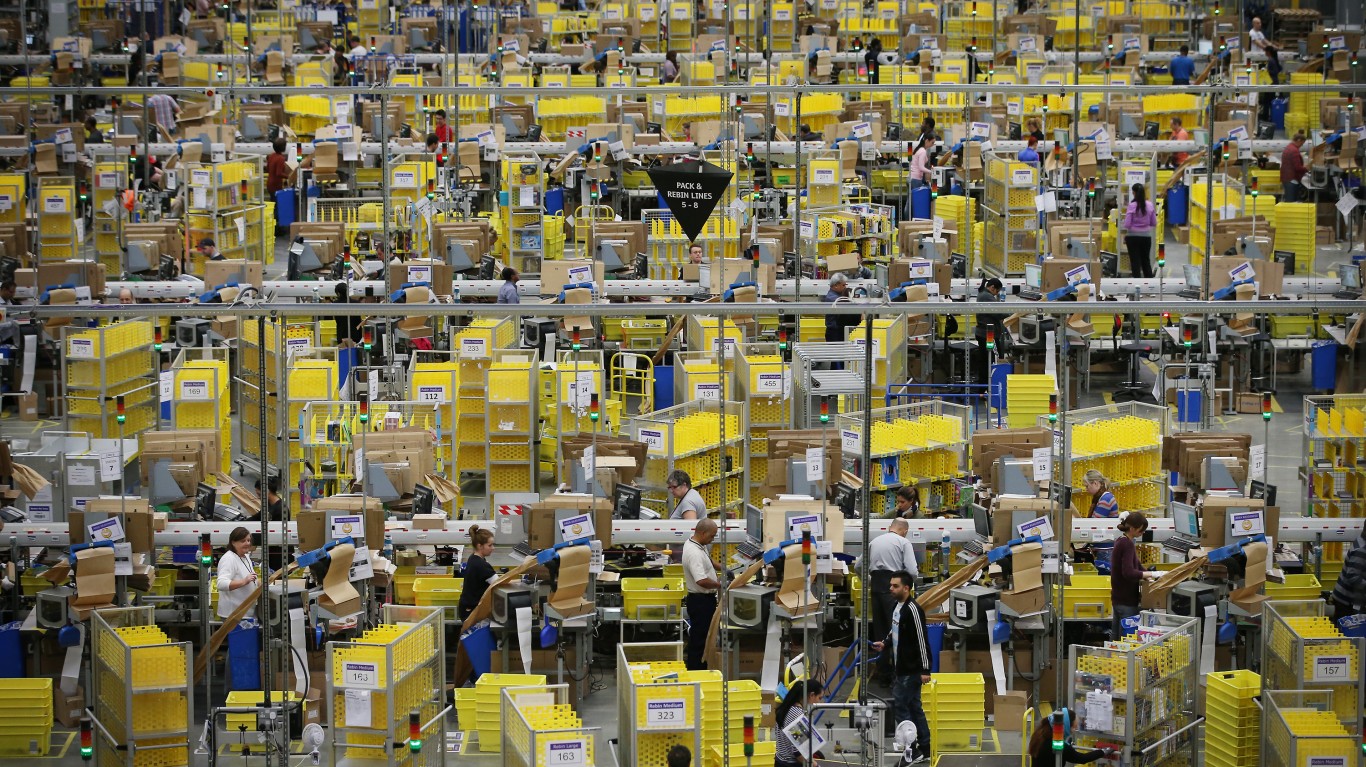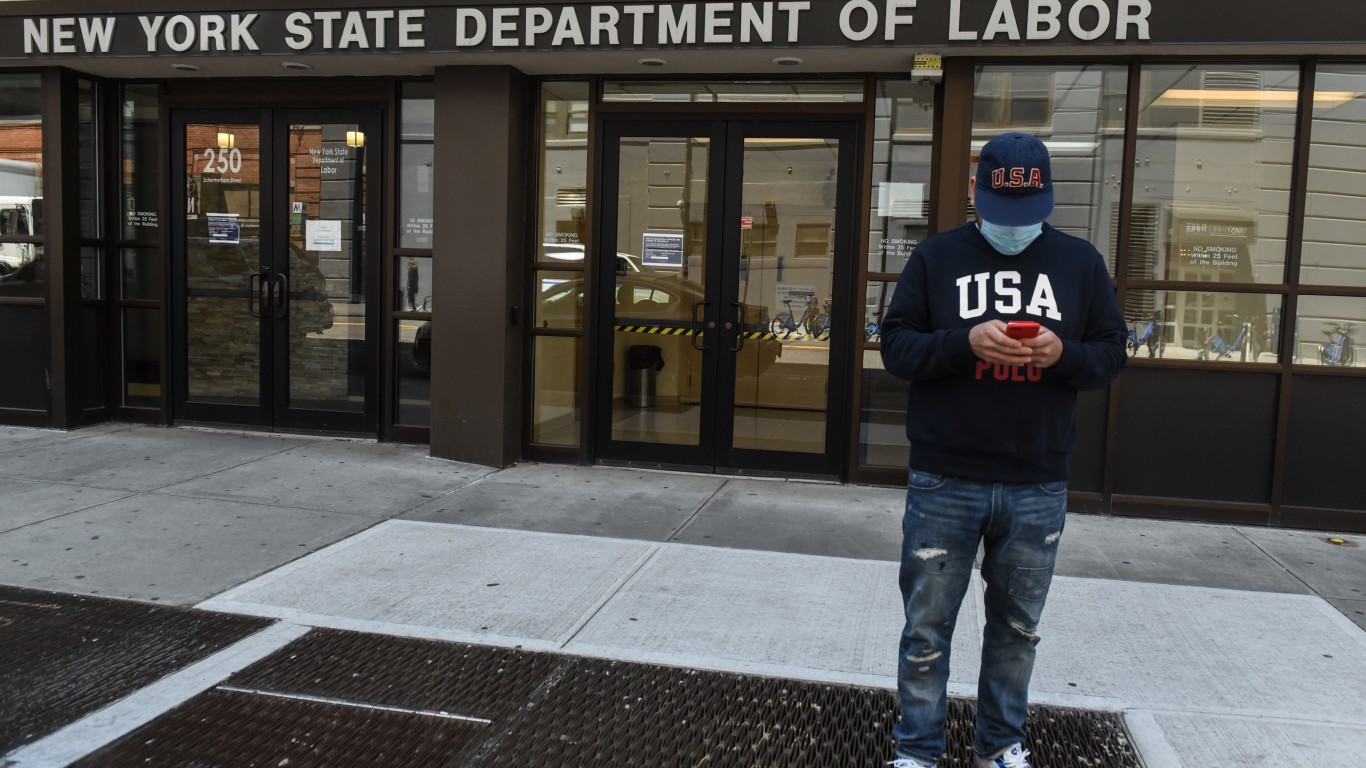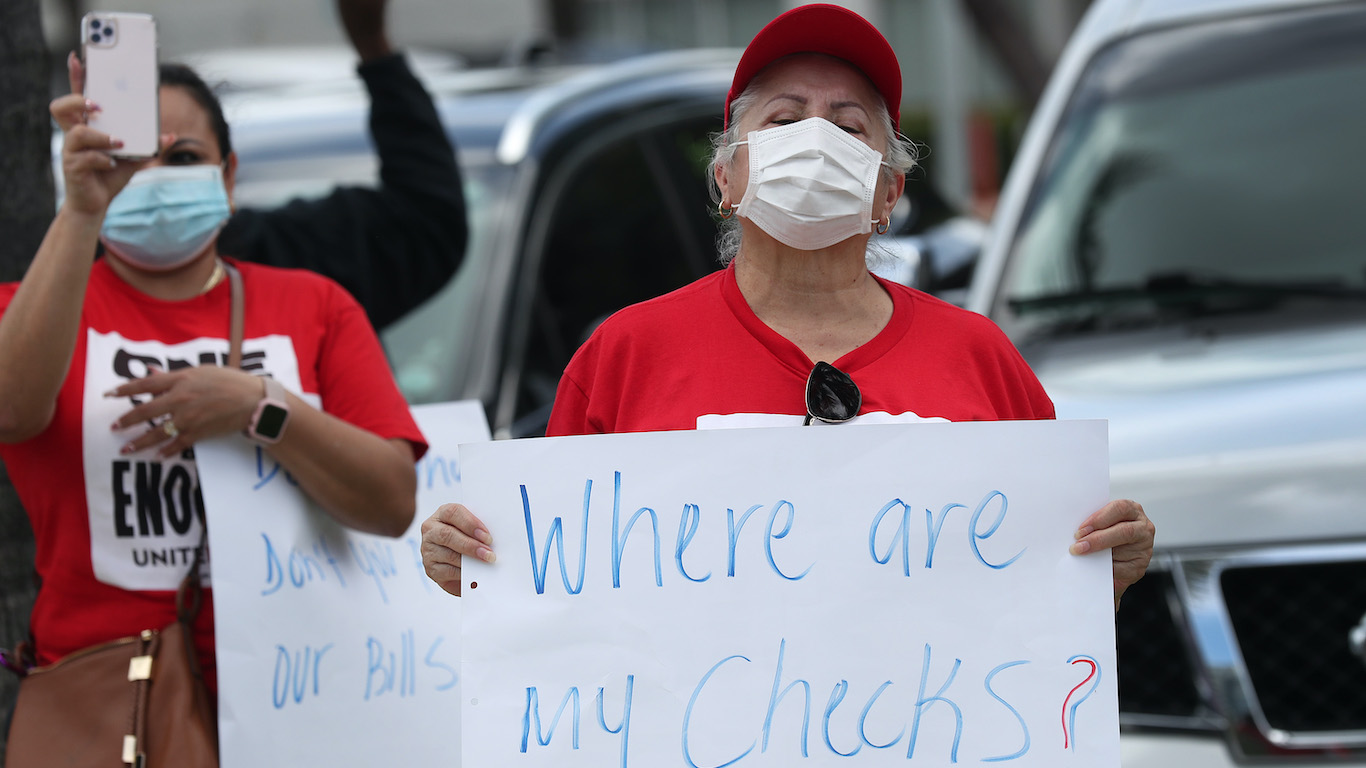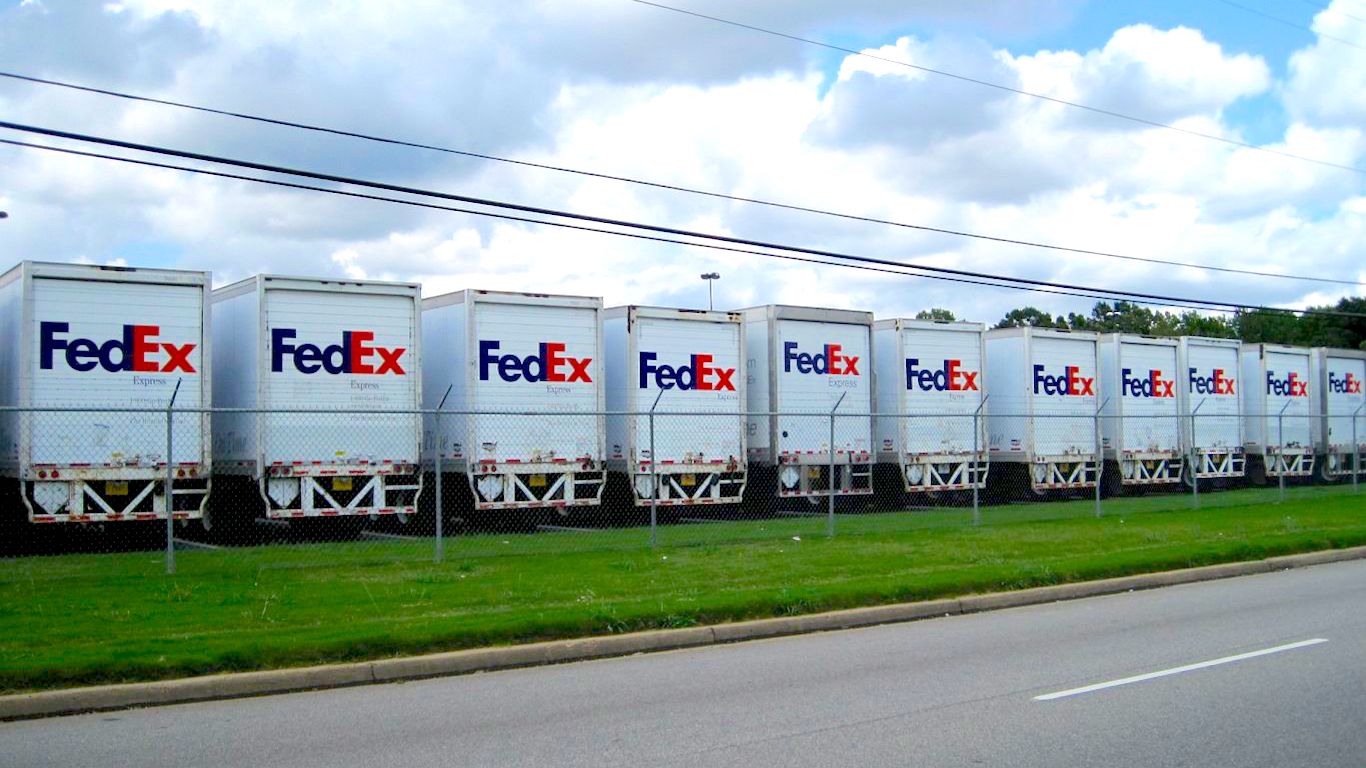Labor
Labor Articles
Workers at an Amazon warehouse in Alabama will begin voting next month on union representation. Amazon is fighting back hard.
Published:
The state where Walmart employs the most people is Arkansas, the location of the company's headquarters.
Published:
U.S. companies announced more than 2.3 million job cuts in 2020, nearly half of which were attributed to the COVID-19 pandemic.
Published:
Federal Reserve believes the rebound in employment will quicken to near the all-time low the jobless rate set last year.
Published:
Among the arguments for extending the benefits of the original CARES Act is that the overall economy will suffer as consumers drop into poverty and demand for goods and services suffers.
Published:
The major recovery in the jobs market has started to show fatigue as 2020 comes to an end.
Published:
Certain occupations are, for a variety of reasons unrelated to the pandemic, becoming increasingly obsolete. This rail transportation job is disappearing the fastest.
Published:
Here's where 12 million Americans may lose jobless benefits, state by state, according to a new report from the Century Foundation.
Published:
These are the 20 jobs that will have the largest declines in the coming year due to the COVID-19 pandemic.
Published:
The latest data show that Black American unemployment was 80% higher than for white Americans last month.
Published:
Layoffs in the travel and entertainment industry could upend the economic recovery. The process already has begun and is certain to spread.
Published:
Older workers who lost their jobs due to the coronavirus pandemic have dropped out of the workforce or are having more difficulty finding new jobs than are younger workers.
Published:
In a show of how quickly Walmart has evolved from a brick-and-mortar company to an e-commerce powerhouse, it will hire 20,000 temporary workers to staff its fulfillment centers for the holidays.
Published:
FedEx says it will add 70,000 workers to meet holiday demand. The only reason that it would need this army of people is if e-commerce is expected to surge during the period.
Published:
Amazon.com plans to add an extraordinary number of workers in the United States and Canada. The hiring binge is more bad news for America's brick-and-mortar retailers.
Published:

Discover Our Top AI Stocks
Our expert who first called NVIDIA in 2009 is predicting 2025 will see a historic AI breakthrough.
You can follow him investing $500,000 of his own money on our top AI stocks for free.














